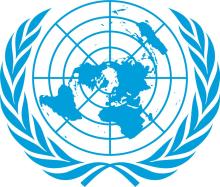Megan McCloskey, a PhD student at the UW School of Law and lecturer in the Law, Societies, and Justice Department, along with a group of UW undergraduate students have been working on a major project for the United Nations Committee on the Rights of Persons with Disabilities. This committee is in the process of preparing a comment on Article 11 of the UN Convention on the Rights of Persons with Disabilities. Article 11 concerns the obligations of States Parties to ensure the protection and safety of persons with disabilities in situations of risk, including armed conflict, humanitarian emergencies, and natural disasters. The United Nations’ comment will serve as an advisory opinion while providing states with guidance on key concepts such as what defines a ‘situation of risk’ as well as the multiple bases within international humanitarian law, international environmental law, and international human rights law underpinning state duties. At the request of the Secretariat to the Committee, UW students have been developing background briefing materials to support the Committee as part of the UW Disability Inclusive Development Initiative (DIDI).
Last winter, the Committee sought public opinion regarding the comment. Over 100 stakeholders submitted written and/or oral comments totaling about 1,000 pages of material in different languages. The UW team - Toby Gallant, Sara Sprague, Elle Skvarna, Juliette Lanser, Stephanie Phillips, and Corinne Herzog - thoroughly examined all the submissions, which included transcripts of oral inputs. They processed each submission using a template endorsed by the Committee Secretariat and crafted a comprehensive analysis of the main themes found throughout the submissions. These students also worked on identifying topics that were underdeveloped or unconsidered.
I spoke to Sara Sprague, a senior in the LSJ major (also a double major in political science, and a double minor in environmental studies and labor studies), about her experience working on this incredible project. Sara first met Megan McCloskey through a study abroad program in Spain, where the group worked on disability initiatives in Spain. The group also met with Non-Governmental Organizations (NGOs), learned and worked on disability inclusive movements, translators, and got involved with disability advocates. Sara read all of the opinions about how Article 11 could better protect people with disabilities, what recommendations they have for the other countries, and how the UN should adopt the convention. The students then gave a 45 minute presentation to the Committee Working Group on Article 11 summarizing the key stakeholder points and responded to questions from the committee.
For Sara Sprague, this experience provided her with yet another call to action. Sara told me that one of the most impactful features of this project was “the power of being able to speak to an important group of people… (such as the United Nations) who have the ability to make change.” Elle Skvarna, another student who worked on this project, told me that “really learning about the state of existence of policy for people with disabilities in times of risk” changed her perspective on the magnitude and necessity for changes in policy. There needs to be more done to better help with accessibility in times of risk and emergencies. We are so proud of these students and the impactful work they are doing!
